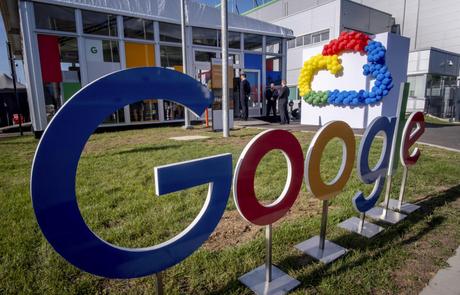By the end of the year, Google (GOOG, GOOGL) plans to overhaul the digital advertising world. In a move designed to protect the privacy of Internet users, Google will end the use of third-party cookies in its Chrome browser, abolishing one of the foundational technologies of the commercial Internet.
Last month, Yahoo Finance reported on what this shakeup could mean for websites that use third-party cookies to survive. It won't be pretty. Some experts described the coming transition as an extinction-level event for many companies.
But based on reader feedback, many Internet users have little sympathy for such publishers. One response to the story saw the advertising industry overhaul as something long overdue and welcomed the overhaul. Some readers argue that advertising in general is ineffective, while others criticized the invasive nature of targeted ads that seemed to follow them everywhere in their daily digital lives.
"I guess I'm an outlier, but I've never seen an ad in my life and said 'yeah... I want that,'" said one reader.
Another complained: "So tired of visiting a site only to go somewhere else and be slammed with ads from a company I didn't want to do business with."
A coping mechanism that has now become second nature to Internet users was summarized as follows in a reader's comment: "If the ad has an X, I click on it and it disappears."

Third-party cookies allow companies to track people across websites to target them with relevant advertisements. Without them, companies know less about their audiences, reducing their ability to make money from advertising.
The disruption of long-standing ad technology will challenge what has sustained the Internet experience for decades: users are shown ads and in return gain access to free content. For websites that rely on advertising on the open Internet, the death of the cookie risks destroying that model and their livelihood.
The story continues
But the push to end third-party cookies reflects changing consumer sentiment about the need for more privacy. This partly explains why, despite the risks for websites that consumers flock to, there is no widespread public outcry about the retention of cookies.
Public opinion data reflects widespread concern about data use and mistrust of companies that collect information about people online.
About four in 10 Americans say they are very concerned about companies selling their information to others without their knowledge, or about people stealing their identities or personal information, according to a Pew Research Center report published in October 2023 published.
Nearly 70% of social media users say they have changed their settings to manage their online privacy, the data shows. And a similar share of U.S. adults say they have declined or turned off cookies or other tracking on websites to protect their privacy.
A smaller but still significant share of people (49%) say they stopped using a device, website or app because they were concerned about how their personal data was being used. And 44% say they've used a browser or search engine that doesn't track what they do.
While concerns about surveillance technology have traditionally been tied to law enforcement, the same survey shows less concern about police monitoring of web activity. The contrast signals an evolving attitude toward the threats posed by conducting so many routines, habits, and activities online.
Ad industry experts acknowledge that bad actors have abused mainstream tracking technology. But they see cookie devaluation as an ill-conceived solution - one that punishes responsible companies that rely on them, rather than the unscrupulous data harvesters who have corrupted the perception of ad targeting.
Anthony Katsur, CEO of the IAB Tech Lab, a trade group for the digital advertising industry, said a more private web experience is the right goal, but the current approach to removing third-party cookies is seriously flawed. "It's like punishing the car for the accident the drunk driver caused."
Despite some vocal opposition to the digital advertising sector, the vast ecosystem and billions of dollars flowing through the sector point to its value to many of the largest publicly traded companies and to the advertisers eager to capture people's attention.
From an industry perspective, consumer data shows that targeted advertising is effective. Otherwise, brands wouldn't pay to show their products to the public.
Data from the IAB Tech Lab shows that consumers understand the trade-off between the ad-supported model and access to free services on the Internet. A significant majority (80%) of consumers agree that websites and apps are free because of advertising, according to a report the group published in January. And 91% of consumers would react negatively if they had to pay for the websites and apps they currently use for free. The study also found that nearly 90% of consumers prefer targeted ads and 87% are more likely to click on ads for products they are interested in or looking for.
Some internet users obviously have unrealistic expectations and want unlimited access to media, without subscription fees or advertisements. Meanwhile, a range of news publishers and streaming companies are conducting their own experiments, trying to find the right balance between free content, ad levels, paywalls and ad-free experiences.
All this takes place during a revolution in the media industry. Cord cutting is happening at an increasing pace, while the profitability of streaming services is uncertain. And traffic to many websites has fallen as the tech giants redirect the public's attention within their walled gardens, while AI threatens to change the way people access content on the internet.
Amid so much uncertainty, it seems like many publishers are out of luck.
Hamza Shaban is a reporter for Yahoo Finance covering markets and the economy. Follow Hamza on Twitter Click here for the latest technology news that will impact the stock market. Read the latest financial and business news from Yahoo Finance .